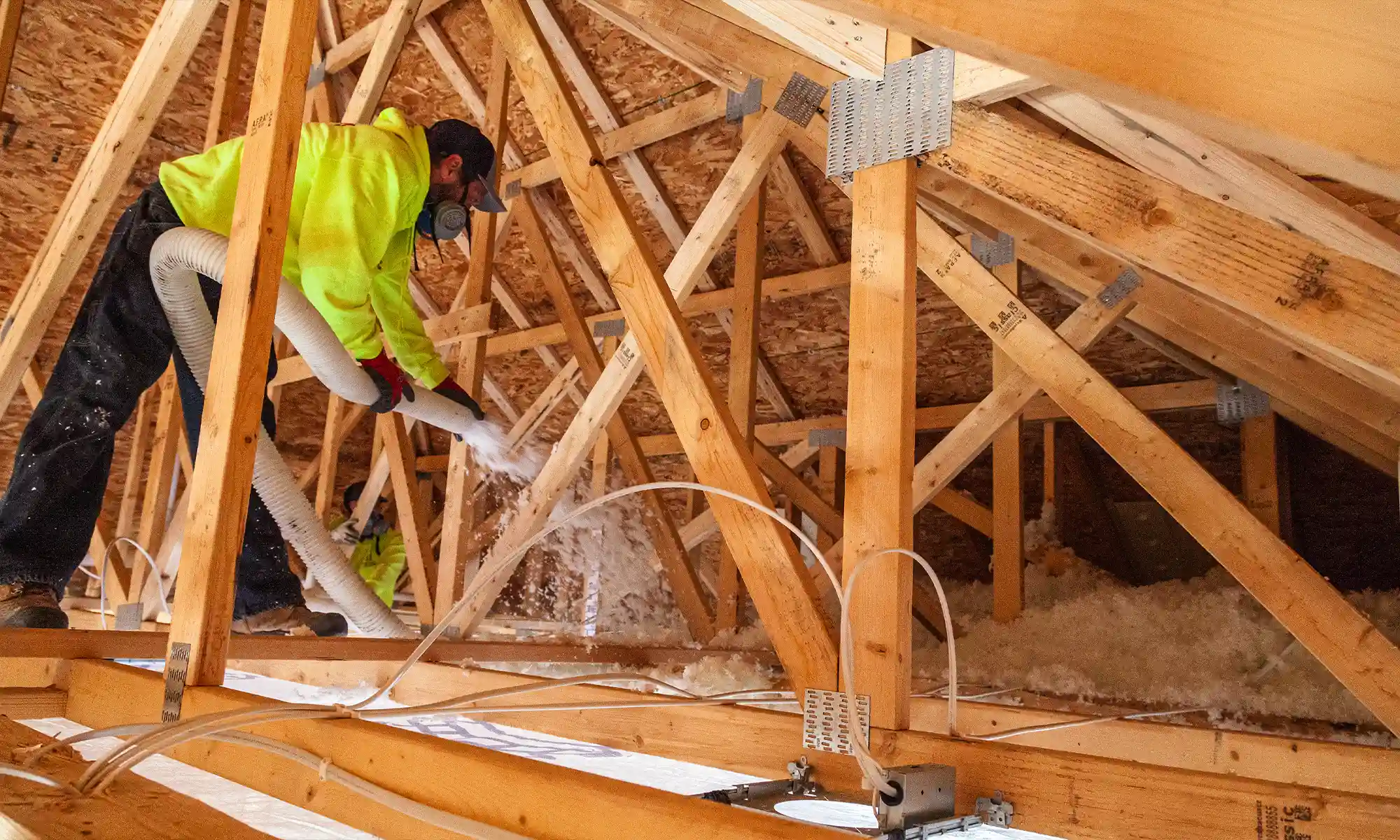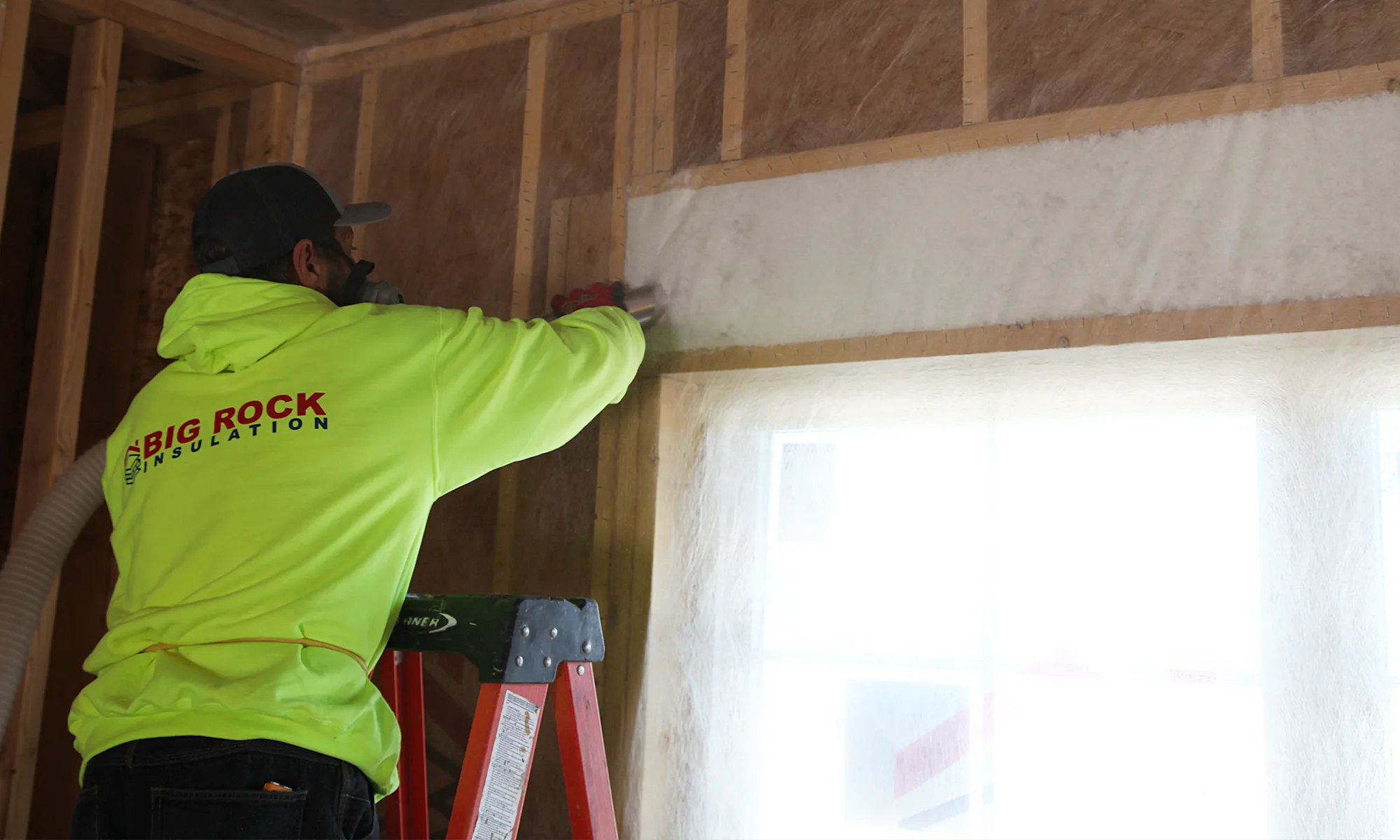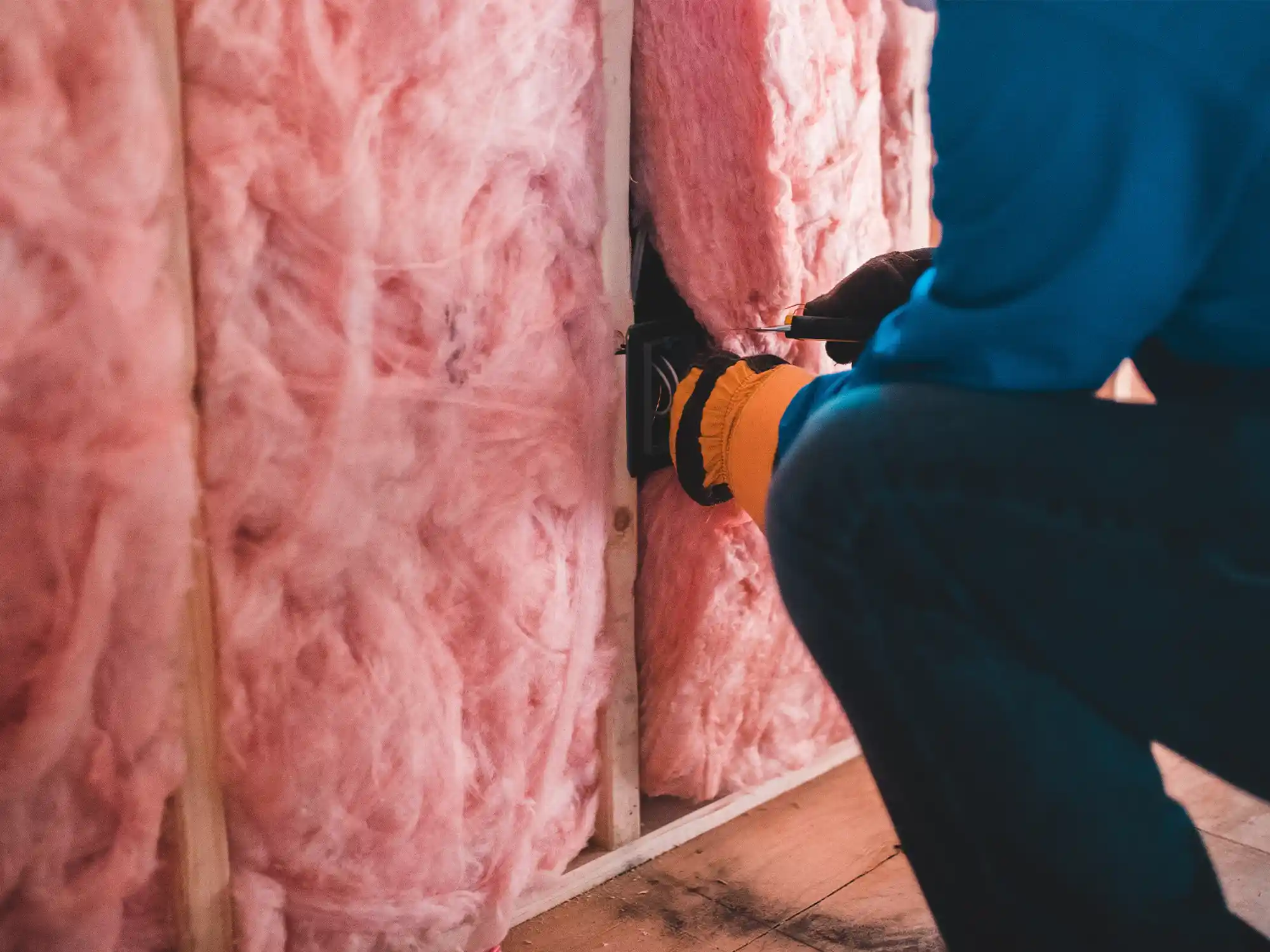So what is BIBS?
BIBS is a certified systems that includes specific fabric and fiberglass fiber types that meet the BIBS system approval. This system has been around for a while but is becoming increasingly popular due to the energy efficiency of the system.

How Is BIBS Insulation Made?
BIBS is made of small glass fibers made primarily of silica sand, soda ash and limestone. Other common fiberglass components found in various BIBS Insulation include magnesite, borax, kaolin clay, Feldspar, nepheline syenite and calcinated alumina.
BIBS Insulation has an R-value of R-15 for 3.5″ thick walls or R-4.23 per inch. In comparison, fiberglass batting insulation is rated at R-11 for 3.5″ thick walls or R-3.7 per inch.
Where To Use?
BIBS Insulation can be used as insulation for walls or roofs in both wood and steel-framed buildings either during construction or as an upgrade. It can be blown into any thickness, size or shape of a wall cavity (3.5″ and up).
BIBS Insulation typically can last 100 years but many manufacturers state that BIBS Insulation will last the lifetime of the building it is used in. The longevity is due to the fact that the fiberglass is so densely packed, eliminating the risk of slumping.

How To Install & Remove BIBS Insulation
Pros & Cons of BIBS Insulation
Pros
- High R-Value: BIBS has a higher R-value than Fiberglass BATTS.
- Longevity: BIBS will last the lifetime of the building due to the dense packing of BIBS.
- Fire Safety: Fiberglass is non-flammable and meets ASTM C674 & ASTM E136
- Reduced Air Leaks & Dust: BIBS can reduce air leakage by 68% and prevent outdoor dust.
- Moisture, Mold & Insect Resistant: Fiberglass does not absorb water or allow mold to grow.
- Sound Reduction: The densely packed nature eliminates air gaps and sound transmission.
- Dynamic Installation: Can be installed in new or existing buildings.
Cons
- Higher Initial Cost: BIBS costs slightly more than fiberglass batts to purchase & install.
- You Need Contractors: BIBS requires certified contractors to install the material.
- Skin & Respiratory Issues: During installation or removal, loose fiberglass can irritate skin & respiratory functions if PPE is not worn
- Disposal: Fiberglass is very hard to recycle and often is disposed in a landfill.







